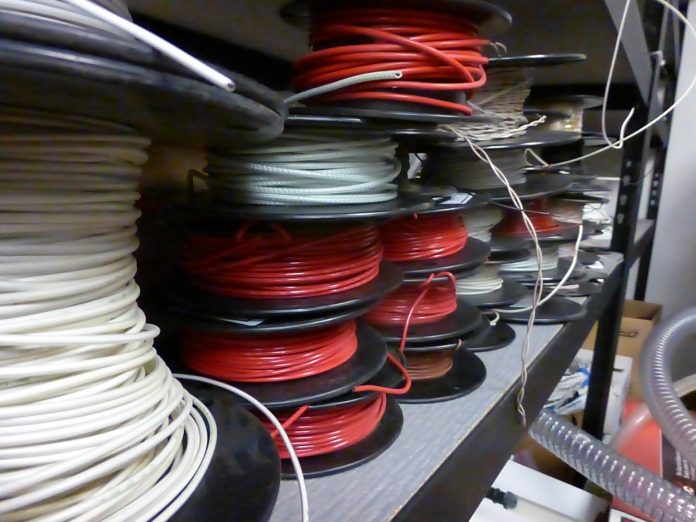In our increasingly interconnected world, cable assemblies companies play a pivotal role in providing the essential infrastructure for modern technology and communication. These companies specialize in designing, manufacturing, and delivering customized cable assemblies tailored to the unique needs of various industries and applications.
This article delves into the world of cable assembly companies, exploring their significance, core competencies, applications, and factors to consider when selecting the right partner for your connectivity needs.
The Significance of Cable Assembly Companies
- Customization: Cable assembly companies excel at producing bespoke solutions. They create cables and harnesses that are precisely designed to meet the unique requirements of each project. This customization ensures optimal performance, reliability, and compatibility with specific applications.
- Complexity Handling: In today’s technology landscape, many systems require intricate cable assemblies with multiple connectors, wires, and components. Cable assembly companies have the expertise to manage the complexity and deliver solutions that work seamlessly.
- Efficiency and Cost Savings: By outsourcing cable assembly to specialists, companies can achieve cost savings through reduced waste, streamlined production, and minimized downtime.
- Quality Assurance: Cable assembly companies are committed to maintaining the highest quality standards. They invest in advanced equipment and rigorous quality control processes to ensure that every cable assembly performs reliably.
The Cable Assembly Manufacturing Process
The cable assembly manufacturing process consists of several key stages:
- Design and Consultation: The process starts with a detailed consultation between the cable assembly company and the client. During this phase, the client outlines their specific requirements, including the desired performance characteristics, materials, and budget constraints.
- Engineering and Prototyping: The company’s engineering team designs the cable assembly based on the client’s requirements. A prototype is then developed and thoroughly tested to ensure it meets performance criteria.
- Materials Selection: Careful selection of materials is crucial to ensure the cable assembly’s durability and functionality in the intended environment. This includes choosing the right wires, connectors, insulation, and protective coatings.
- Manufacturing: Once the design and prototyping stages are complete, production begins. Cable assembly companies use advanced equipment and highly skilled technicians to manufacture assemblies to exact specifications.
- Testing and Quality Control: Rigorous testing and quality control processes are implemented to verify that each cable assembly meets performance standards, safety regulations, and client expectations.
- Packaging and Delivery: After successful testing and inspection, the cable assemblies are packaged and delivered to the client with comprehensive documentation, including test results and compliance certificates.
Applications of Cable Assemblies
Cable assemblies find applications in various industries and sectors, including:
- Aerospace and Defense: In aircraft, military vehicles, and communication systems, cable assemblies must withstand extreme conditions and ensure consistent, secure connections.
- Medical Devices: Cable assemblies are crucial components in medical equipment, such as diagnostic devices, surgical instruments, and patient monitoring systems, where precision and reliability are paramount.
- Automotive: The automotive industry relies on cable assemblies for wiring harnesses, power distribution, and sensor connections, demanding durability and resistance to harsh environmental conditions.
- Telecommunications: High-speed data transmission and reliable connectivity are essential in telecommunications networks, making cable assemblies a fundamental component.
- Industrial Automation: Manufacturing and industrial automation systems rely on cable assemblies to connect machines, sensors, and control systems, enhancing efficiency and productivity.
Choosing the Right Cable Assembly Company
When selecting a cable assembly company, consider the following factors:
- Industry Expertise: Look for companies with experience in your specific industry to ensure they understand your unique requirements.
- Quality Certifications: Verify that the company adheres to industry standards and holds certifications such as ISO 9001, UL, and industry-specific certifications.
- Customization Capabilities: Ensure the company can provide tailored solutions that meet your precise needs.
- Material Selection: Inquire about the materials and manufacturing processes used to guarantee high-quality, durable cable assemblies.
- Testing and Quality Assurance: Ask about their testing processes to ensure the assemblies meet your performance and safety standards.
- Cost and Lead Time: Consider pricing, lead times, and the company’s ability to meet project timelines while maintaining quality.
Conclusion
Cable assembly companies serve as essential partners in the ever-expanding world of technology and connectivity. Their ability to design, engineer, and produce customized cable assemblies tailored to specific applications ensures the seamless operation of critical systems across various industries.
By carefully selecting the right cable assembly company, businesses can secure the connectivity solutions they need to drive success, enhance reliability, and maintain a competitive edge in an increasingly interconnected world.







